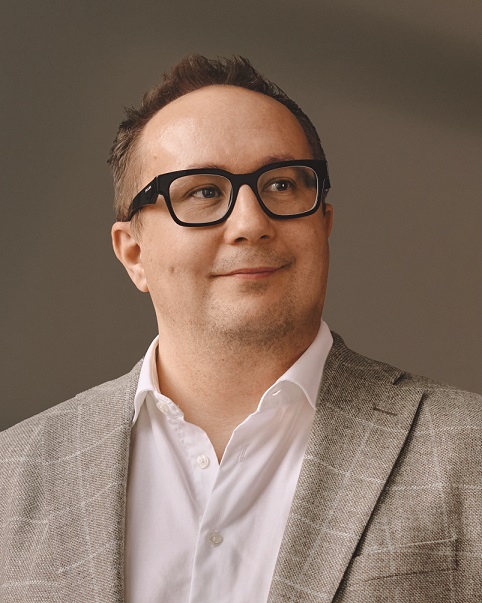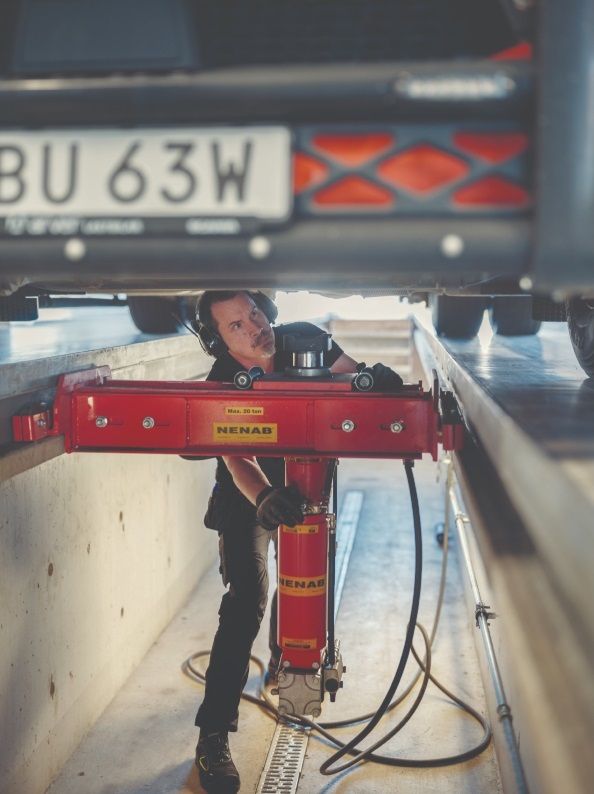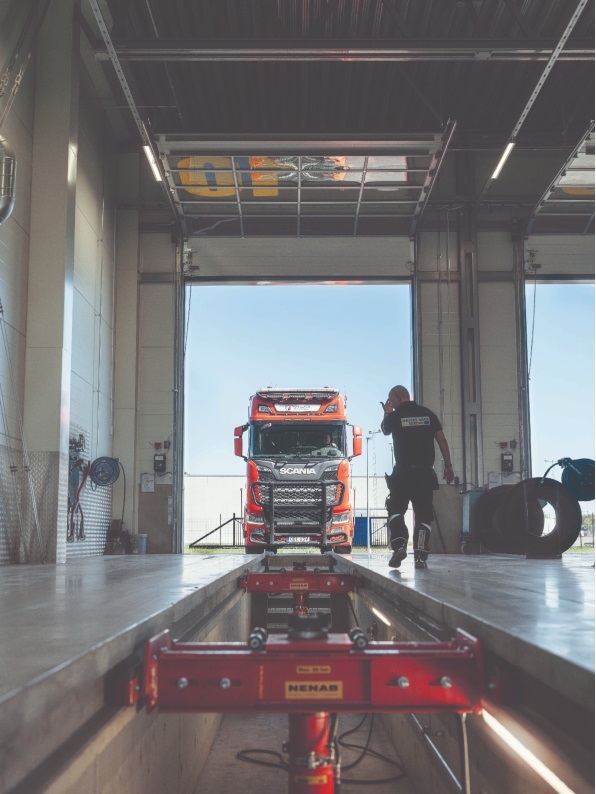Nordic Market Will Fare Well For Premium Tyres: Citira
- By Gaurav Nandi
- August 21, 2025

Scandinavian tyre service provider Citira sees robust potential for premium tyres in the Nordic region, driven by seasonal demands and safety priorities. CEO David Boman highlights that premium tyres including Pirelli’s offerings hold a significant share in passenger car, light truck and truck tyre segments supported by harsh winter conditions that emphasise performance and reliability. Despite a slight recent decline amid broader economic pressures and rising price sensitivity, premium brands remain relevant. Citira’s new long-term partnership with Pirelli and acquisition of Dackia AB aims to consolidate and optimise premium tyre distribution across Sweden.
Scandinavian tyre service company Citira recently told Tyre Trends that Nordic countries have excellent potential for premium tyres during a discussion over its partnership with Italian tyre major Pirelli.
Speaking on the market potential, Chief Executive Officer David Boman said, “When it comes to the Nordic markets, Scandinavia in particular has a relatively high share of premium tyres across categories including passenger car, light truck and TBR segments. Compared to other global regions, the demand for premium tyres here is notably strong.
 “One of the main reasons for this is the seasonal nature of our market. Winter tyres, in particular, drive a more premium-oriented approach because of the need for high performance and safety under harsh conditions. While we’ve observed a slight decline in the premium tyre share over the past few years, it still holds a significant portion of the market. This demand is closely tied to seasonal safety concerns, especially in winter, autumn and early spring. Drivers here prioritise safety and reliability, which naturally supports the continued relevance of premium brands like Pirelli.”
“One of the main reasons for this is the seasonal nature of our market. Winter tyres, in particular, drive a more premium-oriented approach because of the need for high performance and safety under harsh conditions. While we’ve observed a slight decline in the premium tyre share over the past few years, it still holds a significant portion of the market. This demand is closely tied to seasonal safety concerns, especially in winter, autumn and early spring. Drivers here prioritise safety and reliability, which naturally supports the continued relevance of premium brands like Pirelli.”
He noted that the decline is likely tied to broader financial challenges in the market, especially following the Covid period. Both consumers and companies have become more price-sensitive, making cost a bigger factor in purchase decisions.
As a result, there’s been a gradual increase in demand for lower-cost, imported non-European tyre brands, while the market share of European premium tyre brands has slightly decreased.
Pirelli and Citira have entered a long-term strategic partnership aimed at enhancing their market presence in Sweden. As part of the deal, Citira will acquire Dackia AB that has a network of 102 retail outlets from Pirelli.
In return, Pirelli and Dackia have signed a supply agreement extending to 2030, ensuring Pirelli remains the main tyre supplier. The transaction, pending regulatory approval, is expected to close by 2025. The partnership will boost Pirelli’s distribution and market coverage while supporting Citira’s goal of expanding a sustainable, flexible and high-quality customer service network.
THE PACT
Citira currently runs over 50 tyre shops and over five retreading units across Scandinavia and Poland. “Citira is actively working towards creating a more efficient and consolidated tyre market. While our current focus is primarily on the Scandinavian region, it’s not out of the question that we may consider expanding beyond this geographic perimeter in the future. This agreement is part of a broader industry trend where partnerships and acquisitions are used to enhance efficiency, strengthen distribution networks and provide end customers with better service coverage,” revealed Boman.
Nonetheless, the deal specifically pertains to the Swedish market, and as part of the regulatory process, Citira has conducted a market analysis to understand the potential implications on market share. However, the specifics of that study were said to be confidential and could not be disclosed prior to the official closing of the deal.
Explaining how this partnership will influence the supply chain of premium tyre in the Nordics, Boman said, “We do anticipate some changes, particularly within Citira. We operate a number of logistics centres, and this partnership presents an opportunity to optimise our overall supply chain setup. Enhancing logistics will be a key enabler of better service and responsiveness in premium tyre distribution.”
 He added, “This particular deal is unlikely to have a direct or immediate impact on independent retailers or smaller distributors. More broadly, the Scandinavian tyre retail sector is undergoing consolidation. Several players are actively reshaping the competitive landscape and that trend could gradually influence the positioning of independents. But again, this specific acquisition is not a disruptive event in that context.”
He added, “This particular deal is unlikely to have a direct or immediate impact on independent retailers or smaller distributors. More broadly, the Scandinavian tyre retail sector is undergoing consolidation. Several players are actively reshaping the competitive landscape and that trend could gradually influence the positioning of independents. But again, this specific acquisition is not a disruptive event in that context.”
Alluding to the current demand for replacement tyres, he said, “In general, the tyre market has proven to be quite non-cyclical. Even in challenging economic conditions, it tends to remain stable. That said, I believe we’re entering a phase where circularity and life-extension solutions will gain more momentum. We’re likely to see increased focus on services that extend tyre life, especially for larger fleets. This shift won’t just be driven by cost or fleet uptime concerns but increasingly by environmental responsibilities.”
THE BUSINESS
According to Boman, Pirelli represents a very minimal share of Citira’s overall sales, currently. However, the strategic partnership mainly revolves around Dackia and Pirelli, and the former is intended to become part of the Citira Group. “Moving forward, there is definitely an opportunity to deepen the collaboration with Pirelli and potentially grow their share within our overall brand mix,” added Boman.
Citira currently follows a multi-brand strategy and will continue with it even after closing of the deal. Besides, it is also involved in process and sales of retreaded TBR tyres and wheel rims.
“We operate a facility in Poland where we refurbish truck and bus rims. The process involves media blasting and repainting the rims to restore its appearance and functionality. The logic behind it is quite similar to retreading. In most cases, the structural integrity of the rim is still intact; it’s just the surface or aesthetics that degrade over time. By restoring these rims, we’re able to extend the life and reduce waste,” said Boman.
The company operates five retreading facilities collectively, located in Finland, Sweden and Poland. It uses both hot-cure and cold-cure retreading methods. Hot-cure is used in Poland and cold retreading in Finland and Sweden. Annually, it retreads around 160,000 tyres, averaging about 13,000 per month. While its current focus is on retreading, Citira is actively exploring expansion into tyre recycling as part of a broader push towards sustainability and circularity.
The company also manages tyre distribution for fleets across countries. Its circular tyre distribution approach involves not only delivering new tyres to customers but also collecting used tyre casings from them. These casings are then sent back to its retreading facilities, creating a closed-loop system. Besides, Citira has different suppliers across Europe for sourcing tyres for retreading.
MARKET WATCH
Citira sees a strong willingness in the market for consolidation and it has already engaged in several partnerships. Commenting on market challenges, Boman said, “One key challenge is the need for a player capable of driving consolidation at a larger scale. In the Scandinavian markets, this kind of brand-independent consolidation hasn’t really taken place over the last 10 to 15 years. Previously, consolidation efforts were primarily led by tyre manufacturers or affiliate networks players. However, consolidation has largely been on hold recently, leaving space for an independent actor to step in. We see that opportunity clearly and believe it is well received both by other market participants and customers. The challenge lies in successfully executing this consolidation while maintaining trust and delivering value across a diverse market.”
 Commenting on the demand for retreading, he said, “The Scandinavian market has a long tradition of retreading heavy vehicle tyres. Currently, there is a growing shift towards pay-per-kilometre or tyre-as-a-service models, especially among large fleets like bus companies and hauliers. Notably, public tenders increasingly require a certain share of retreaded tyres, reflecting a strong environmental focus. Retreading extends the life of a tyre by reusing about 70 percent of its original material, making it a significant sustainability tool. The market share of retreaded tyres is gradually increasing with expectations that the retread market will grow faster than the new tyre market in the coming years.”
Commenting on the demand for retreading, he said, “The Scandinavian market has a long tradition of retreading heavy vehicle tyres. Currently, there is a growing shift towards pay-per-kilometre or tyre-as-a-service models, especially among large fleets like bus companies and hauliers. Notably, public tenders increasingly require a certain share of retreaded tyres, reflecting a strong environmental focus. Retreading extends the life of a tyre by reusing about 70 percent of its original material, making it a significant sustainability tool. The market share of retreaded tyres is gradually increasing with expectations that the retread market will grow faster than the new tyre market in the coming years.”
“The main challenges for the retreading industry lie in overcoming the longstanding perception that retreaded tyres are merely a low-cost option rather than an environmentally friendly and sustainable product. This is mostly prevalent is Scandinavia and it is crucial to shift this mindset by educating customers and the broader market about the true benefits of retreading. Moving away from a purely price-driven sales approach to one that highlights quality, durability and positive environmental impact remains a significant hurdle for the industry,” he added.
AZuR Shortlisted For German Award For Sustainability Projects 2026
- By TT News
- February 03, 2026

For the second consecutive year, the Alliance for the Future of Tyres (AZuR) has been shortlisted for the German Award for Sustainability Projects, following its 2025 win. This renewed nomination underscores the jury’s recognition of AZuR as a pioneering force in sustainability, particularly for its dedicated efforts to advance tyre retreading as a core component of a circular economy. The 2026 award ceremony will be held under the patronage of Brigitte Zypries on 17 September in Berlin.
AZuR’s multifaceted initiative extends well beyond theoretical advocacy. Its work gained significant international attention with the Retreading Summit, held in September 2025 at KRONE Trailer in Werlte. This event convened experts from industry, politics, academia and media for two days of intensive dialogue on the potential, challenges and necessary policy frameworks for tyre modernisation, leading to the launch of concrete action plans. Furthermore, the alliance drives progress through strategic communications and direct support for flagship projects, such as the new passenger car tyre retreading facility established by Rigdon in Pfaffenhofen.
Central to AZuR’s mission is transforming public perception by demonstrating that worn tyres are valuable resources, not waste. Through ongoing awareness campaigns, it highlights the substantial ecological and economic benefits of retreaded tyres, which can be refurbished multiple times to conserve raw materials, reduce climate impact and offer cost-effective solutions. The German Award for Sustainability Projects, judged by a panel chaired by Prof Dr Claudia Kemfert of DIW Berlin, evaluates entries based on their innovation, impact and relevance to a sustainable future. AZuR’s repeated shortlisting affirms that its model for a tyre circular economy is a replicable and exemplary system with groundbreaking potential.
- Manish Maharaj
- Balkrishna Industries Ltd
- BKT Tyres
- Apollo Tyres Ltd
- Tyre Industry
- Business Finance Leadership
Manish Maharaj Joins BKT Tyres as GM & Head of Business Finance
- By Sharad Matade
- February 02, 2026

Seasoned tyre industry executive Manish Maharaj has embarked on a new professional chapter, joining Balkrishna Industries Ltd (BKT Tires) in a senior leadership capacity after a distinguished 11-year tenure with Apollo Tyres Ltd.
In his new role at BKT Tires, Maharaj has been appointed General Manager and Head of Business Finance, where he will focus on enhancing financial strategy, driving performance-driven growth, and building scalable systems to support BKT’s global expansion ambitions.
“I am thrilled to begin a new chapter with BKT Tires,” said Maharaj.
Maharaj’s career at Apollo spanned multiple strategic roles in one of the world’s leading tyre manufacturers, most recently serving as Regional Chief Financial Officer for South East Asia, the Middle East and Africa, and later as Business Head for South East Asia. In these capacities, he led multi-market commercial and financial operations, driving robust business performance across diverse cultural and economic environments.
At Apollo, Maharaj was responsible for charting growth strategies in fast-evolving markets, strengthening distributor partnerships, and reinforcing brand positioning across key ASEAN economies. His leadership coincided with initiatives to expand premium brand presence in Thailand, Malaysia, Philippines & South Korea and foster deeper retail engagement across the ASEAN region.
Christoph Braunsberger Appointed As CEO Of Anyline
- By TT News
- February 02, 2026

Anyline, a prominent provider of AI-driven mobile tyre inspection technology, is entering a new phase of growth under a new leadership structure. Christoph Braunsberger has been appointed Chief Executive Officer, assuming the role immediately. He succeeds Co-Founder Lukas Kinigadner, who will now serve as Chief Revenue Officer, concentrating on worldwide sales growth, partnership development and expanding the company's global customer base.
Braunsberger originally joined the company in 2019 as Chief Financial Officer and Managing Director. His extensive background in finance, strategy consulting and investment banking, including prior experience at PwC, equipped him to establish the operational foundations necessary for international scaling. He was instrumental in leading the company's expansion into the United States, overseeing significant funding initiatives, and serving as President of its North American operations.
This executive transition occurs as the company experiences rapidly accelerating enterprise adoption across multiple sectors. Logistics, manufacturing, retail and the public sector are all key markets, with the automotive industry representing a particularly strong growth area. The proven industrial scalability of the technology is demonstrated by a recent milestone of 100 million tyre scans conducted globally. This achievement reinforces the robustness of the computer vision platform, which is designed to address a wide spectrum of visual inspection and data capture needs for large-scale commercial and industrial clients. The leadership change is designed to sharpen the company's focus on an AI-centric operational approach, leveraging its current commercial momentum and broadening application across diverse industries.
Lukas Kinigadner, Co-Founder and Chief Revenue Officer, Anyline, said, “This leadership transition reflects where Anyline is today. Our AI platform has achieved clear product-market fit across industries, with strong and accelerating traction in automotive. The company is on a clear path towards profitable growth. Christoph is the right CEO for this phase, and I’m excited to concentrate fully on driving revenue, partnerships and customer impact.”
Braunsberger said, “Anyline’s AI is already delivering real-world impact at scale. My focus is on building on that momentum – strengthening our operating model, scaling efficiently and deepening collaboration with customers and partners as global AI adoption accelerates.”
- FARREL POMINI
- HF GROUP
- WF RECYCLE-TECH
- Pyrolysis
- Tyre Recycling
- End-Of-Life Tyres
- Farrel Continuous Mixer
HF GROUP’s FARREL POMINI Acquires Majority Stake In WF RECYCLE-TECH
- By TT News
- February 02, 2026

A new phase of strategic collaboration has begun between FARREL POMINI of the HF GROUP and WF RECYCLE-TECH, following the acquisition of a majority stake by the former. Headquartered in the UK, WF RECYCLE-TECH has developed a unique, patented pyrolysis process for transforming end-of-life tyres into valuable materials like recovered carbon black and oil. A central component of this system is FARREL POMINI's own Farrel Continuous Mixer (FCM), which efficiently processes tyres for both mechanical and chemical recycling.
This deepened partnership, building upon a minority investment made in 2021, is designed to rapidly expand the global commercialisation of this sustainable technology. The move solidifies FARREL POMINI’s commitment to pioneering circular economy solutions for the rubber and plastics sectors worldwide. By enabling greater global support and accelerating adoption, this milestone underscores the aligned vision of all involved organisations to drive innovation in sustainable industrial practices.
Paul Lloyd, President, Farrel Corporation, said, “We are delighted to deepen our partnership with WF RECYCLE-TECH and take this important step toward further commercialisation of their proven pyrolysis system. This acquisition aligns with our long-term strategy to support sustainable solutions that address global challenges.”
Jo Dennis, Managing Director, WF RECYCLE-TECH, said, “We are very pleased to become majority-owned by FARREL POMINI and HF GROUP. Being part of the HF GROUP organisation allows us to leverage a strong global support network, deep technical expertise and long-term investment commitment. This partnership significantly strengthens our ability to scale our pyrolysis system and deliver solutions to customers around the world.”
Ian Wilson, Co-CEO, HF GROUP, said, “This acquisition reflects HF GROUP’s strategic focus on enabling technologies that drive sustainable industrial growth. By combining WF RECYCLE-TECH’s patented pyrolysis process with FARREL POMINI’s technology expertise and HF GROUP’s global infrastructure, we are creating a powerful platform to address the worldwide challenge of end-of-life tyre recycling.”







Comments (0)
ADD COMMENT